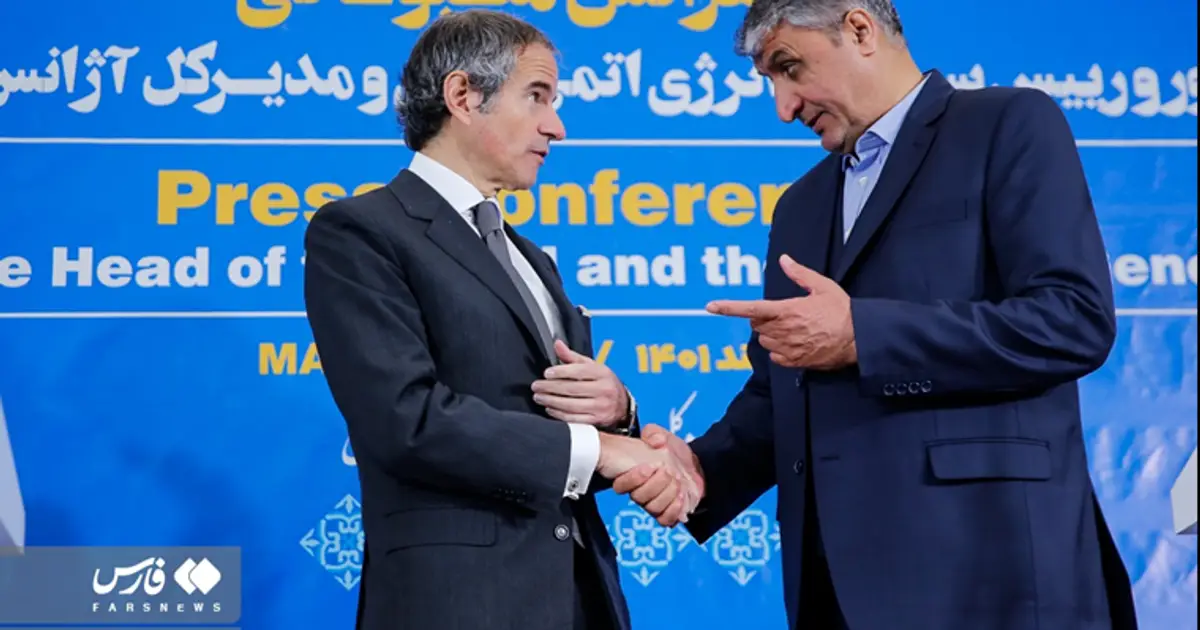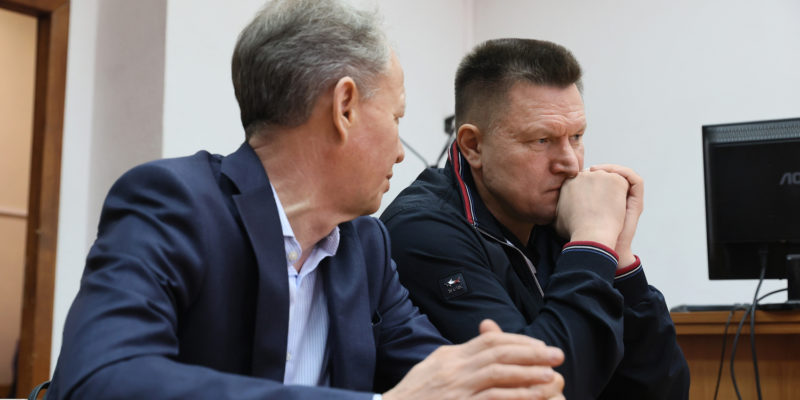A senior IRGC commander warned Thursday that Tehran could change its nuclear policies if Israel continues to threaten to attack Iran’s nuclear sites, suggesting no cooperation with world bodies and building a nuclear bomb.
“If the fake Zionist regime wants to use the threat of attacking nuclear sites to put pressure on Iran, it is possible and conceivable for the Islamic Republic to revise its nuclear doctrine and policies, and deviate from its past declared considerations,” said Ahmad Haghtalab, who is in charge of the security of Iran’s nuclear sites.
His remarks came a day after Zohar Palti, the former intelligence director at the Israeli spy agency Mossad, announced that Israel has many options on the table to retaliate Tehran’s recent missile and drone attacks and could even choose to strike Iran’s nuclear facilities.
According to Haghtalab, Israel’s threats to target Iran’s nuclear facilities “are not from today or yesterday” and Israel has already been involved in “sabotage and terrorist acts” to stop Iran’s nuclear program over the past years.
One of the most significant attacks on Iran’s nuclear program occurred in 2010 when the Stuxnet computer virus disrupted the control systems of the country’s most sensitive and tightly watched nuclear facility in Natanz.
The Dutch daily Volkskrant reported in January that the malware, widely believed to be an American-Israeli creation, was delivered by a Dutch engineer working at the enrichment plant.
In 2020 and 2021, two internal explosions hit Iran's highly protected Natanz uranium enrichment facility, inflicting considerable damage. The attacks were attributed to Israel, although Iran's chief adversary never took responsibility. In November 2020, Mohsen Fakhrizadeh, known as the father of Iran's nuclear program was assassinated in broad daylight near Tehran.
Further in his remarks, IRGC Commander Haghtalab threatened that the Iranian government can target Israel’s nuclear sites if the Jewish state decides to respond to Iran’s recent offensive on the Israeli territory: “The nuclear sites of the Zionist enemy have been identified and we have the information we need on all targets. In case of their so-called retaliation, our hands are on the trigger to fire powerful missiles to destroy specified targets.”
On Saturday night, Iran launched its first ever direct offensive against Israeli territory with more than 350 drones and cruise and ballistic missiles. The Israeli army announced that 99% of the projectiles were intercepted and downed.
According to IAEA Director General Rafael Grossi, Iran shut down its nuclear facilities last Sunday over “security considerations.” He confirmed that the facilities had reopened within 24 hours, but with no IAEA supervision, as the agency decided to temporarily keep its inspectors away until the situation is “completely calm.”
When asked about the possibility of Israel hitting Iran’s nuclear sites, Grossi said, “We are always concerned about this possibility.” The UN nuclear chief also reiterated the IAEA’s concerns about Iran’s nuclear program.
Iranian officials have always maintained that Tehran’s nuclear program is purely for peaceful purposes. But nuclear experts are almost unanimous in their assessment that enrichment to the levels and in the amounts that Iran has been doing since 2021 cannot be justified in the absence of a weapons program.
In February, Ali-Akbar Salehi, the former head of Iran's nuclear agency, implied that the country has everything it needs for an A-bomb: "We have [crossed] all the thresholds of nuclear science and technology. Here's an example: Imagine what a car needs; it needs a chassis, an engine, a steering wheel, a gearbox. You're asking if we've made the gearbox, I say yes. Have we made the engine? Yes, but each one serves its own purpose."
On Wednesday, an advisor to Iranian Parliament Speaker Mohammad-Bagher Ghalibaf hinted at Tehran’s military use of its nuclear program. “Iran has a nuclear program in addition to its missile program,” wrote Mehdi Mohammadi on X in what can be construed as a shrouded threat against Israel and its allies.
Meanwhile, Mohammad Marandi, a political analyst close to Iran’s hardliners, claimed that Iran has not yet used “its most advanced weapons” against Israel. When asked if Iran might use nuclear weapons, he said, “Iran is not like the United States which has and uses and has already used nuclear weapons.”
In November, an IAEA confidential report indicated that Iran has enough uranium enriched to up to 60% for three atomic bombs.

 1 week ago
25
1 week ago
25


